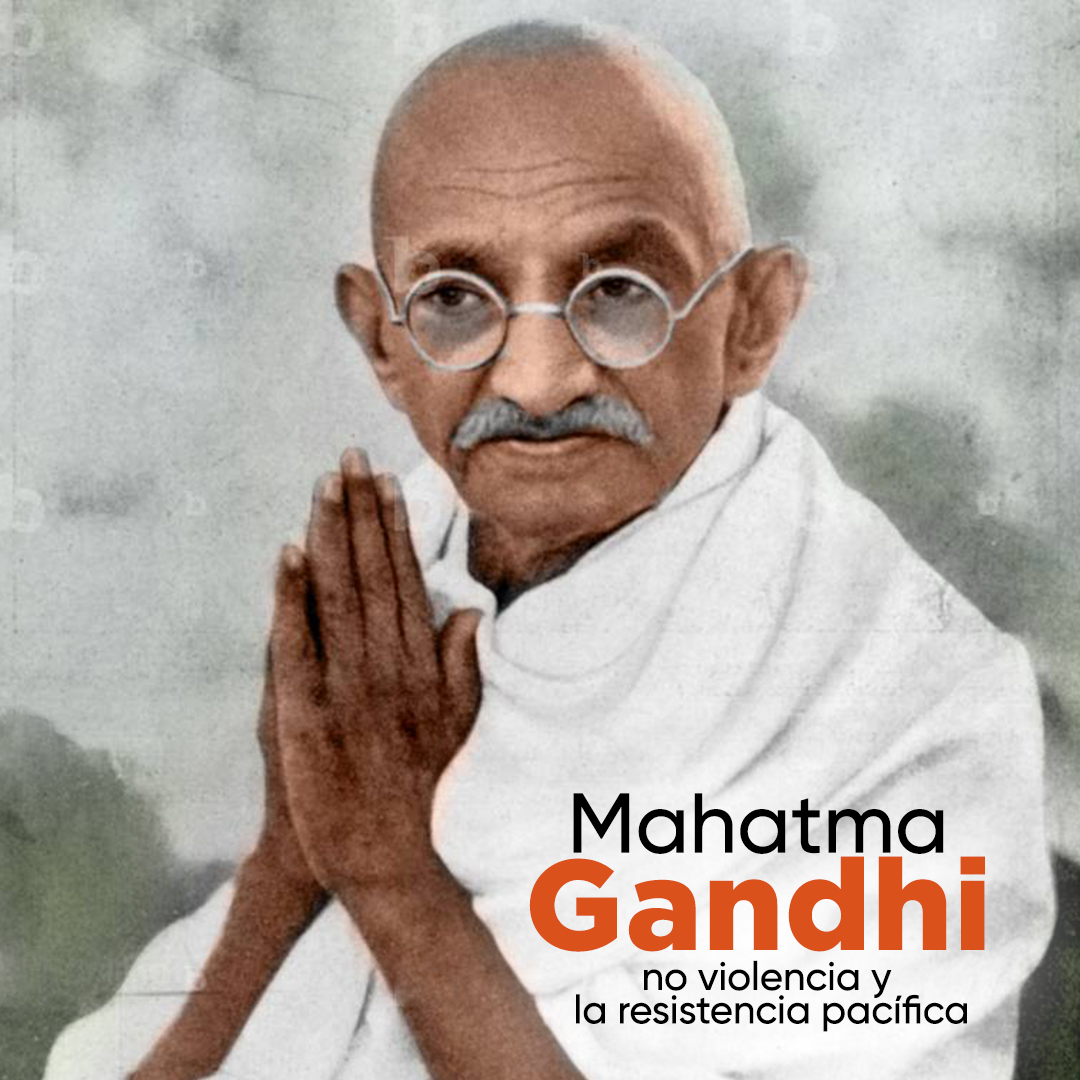WELCOME TO OUR ONLINE STORE
Mahatma Gandhi non-violence and peaceful resistance

Mahatma Gandhi, whose full name is Mohandas Karamchand Gandhi, was an Indian political and spiritual leader, known for his crucial role in India's struggle for independence from British rule. He was born on 2 October 1869 in Porbandar, in the state of Gujarat, India, and was assassinated on 30 January 1948 in New Delhi.
Mahatma Gandhi, known for his approach to non-violence and peaceful resistance, would likely offer the following advice to the Venezuelan people to maintain faith and hope in difficult times:
1. *Practice Non-Violence (Ahimsa):* Gandhi believed strongly in non-violence as a powerful tool for social change. He would advise Venezuelans to avoid violence in all its forms, and instead seek peaceful methods to express their demands and fight for their rights.
2. *Unity and Solidarity:* Gandhi stressed the importance of unity among people. He would say that staying united and supportive is crucial to facing challenges and achieving significant changes. Cooperation and mutual support strengthen the community.
3. *Peaceful Resistance (Satyagraha):* It would inspire Venezuelans to use peaceful resistance and civil disobedience to protest injustice. Standing firm in your principles and convictions, without resorting to violence, can be an effective way to push for change.
4. *Self-discipline and Sacrifice:* Gandhi believed in the importance of self-discipline and personal sacrifice for the common good. He would advise Venezuelans to be willing to make personal sacrifices to achieve justice and well-being for all.
5. *Seek the Truth (Satya):* Truth was central to Gandhi's philosophy. He would advise the Venezuelan people to seek and adhere to the truth, even in difficult times. Transparency and honesty are fundamental to building a just society.
6. *Education and Empowerment:* Gandhi valued education as a tool for empowerment. He would advise Venezuelans to invest in education and personal development as a means to strengthen their capabilities and skills to face challenges.
7. *Spirituality and Hope:* Maintaining a spiritual connection and cultivating hope are essential to overcoming adversity. Gandhi would say that finding comfort in faith and personal beliefs can provide the strength needed to move forward.
These principles, based on Gandhi’s teachings, could help the Venezuelan people maintain faith and hope as they seek peaceful and just solutions to the challenges they face.
Gandhi is renowned for his philosophy of non-violence (ahimsa) and peaceful resistance (satyagraha). He believed in non-violent civil disobedience as a way to protest injustice and advocate for social and political change. Some of the major campaigns and movements he led include:
1. *The Non-Cooperation Movement (1920-1922):* A call to boycott British products, institutions and government services as a protest against colonial oppression.
2. *The Salt March (1930):* A 240-mile walk from Ahmedabad to the Dandi coast to protest the British monopoly on salt.
3. *The Quit India movement (1942):* A massive call for British withdrawal from India.
In addition to her struggle for Indian independence, Gandhi also worked for the elimination of caste discrimination, women's rights, and interfaith harmony. Her life and teachings have influenced many civil rights leaders and movements around the world, including Martin Luther King Jr. and Nelson Mandela.
Mahatma Gandhi, known for his approach to non-violence and peaceful resistance, would likely offer the following advice to the Venezuelan people to maintain faith and hope in difficult times:
1. *Practice Non-Violence (Ahimsa):* Gandhi believed strongly in non-violence as a powerful tool for social change. He would advise Venezuelans to avoid violence in all its forms, and instead seek peaceful methods to express their demands and fight for their rights.
2. *Unity and Solidarity:* Gandhi stressed the importance of unity among people. He would say that staying united and supportive is crucial to facing challenges and achieving significant changes. Cooperation and mutual support strengthen the community.
3. *Peaceful Resistance (Satyagraha):* It would inspire Venezuelans to use peaceful resistance and civil disobedience to protest injustice. Standing firm in your principles and convictions, without resorting to violence, can be an effective way to push for change.
4. *Self-discipline and Sacrifice:* Gandhi believed in the importance of self-discipline and personal sacrifice for the common good. He would advise Venezuelans to be willing to make personal sacrifices to achieve justice and well-being for all.
5. *Seek the Truth (Satya):* Truth was central to Gandhi's philosophy. He would advise the Venezuelan people to seek and adhere to the truth, even in difficult times. Transparency and honesty are fundamental to building a just society.
6. *Education and Empowerment:* Gandhi valued education as a tool for empowerment. He would advise Venezuelans to invest in education and personal development as a means to strengthen their capabilities and skills to face challenges.
7. *Spirituality and Hope:* Maintaining a spiritual connection and cultivating hope are essential to overcoming adversity. Gandhi would say that finding comfort in faith and personal beliefs can provide the strength needed to move forward.
These principles, based on Gandhi’s teachings, could help the Venezuelan people maintain faith and hope as they seek peaceful and just solutions to the challenges they face.
Gandhi is renowned for his philosophy of non-violence (ahimsa) and peaceful resistance (satyagraha). He believed in non-violent civil disobedience as a way to protest injustice and advocate for social and political change. Some of the major campaigns and movements he led include:
1. *The Non-Cooperation Movement (1920-1922):* A call to boycott British products, institutions and government services as a protest against colonial oppression.
2. *The Salt March (1930):* A 240-mile walk from Ahmedabad to the Dandi coast to protest the British monopoly on salt.
3. *The Quit India movement (1942):* A massive call for British withdrawal from India.
In addition to her struggle for Indian independence, Gandhi also worked for the elimination of caste discrimination, women's rights, and interfaith harmony. Her life and teachings have influenced many civil rights leaders and movements around the world, including Martin Luther King Jr. and Nelson Mandela.
